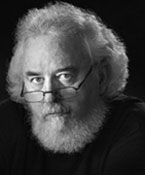The Brain’s Problem with Information Overload Is Prompting Calls for Changes in How Laws, Policies and Rules Are Written. Sometimes, All It Takes is a Nudge
In the world of ideas, there’s a battle currently underway between, No. 1, forces that believe the brain is often best left with a minimum of interference to figure out what’s in its own best interest and, No. 2, forces that believe the brain needs to experiment with better ways to intervene and shape what is being decided.
If you know where to look and what to look for, the blogosphere has been ablaze with this discussion for some time. What’s new is that support for view No. 2 is now coming from some of the strangest places. Like, for example, The University of Chicago’s business and law schools.
For decades, The U. of Chicago has been a stronghold for academics defending laizze-faire capitalism. Until his death last year, it was the hangout for the world’s most influential modern spokesperson for marketplace-dominated economics, Nobel-Prize-winner Milton Friedman. Dr. Friedman was a forceful believer in viewpoint No. 1. He had an unshakable faith in the marketplace’s ability to decide what people want and how best to give it to them.
Here’s a sample of Friedman’s bias on the subject: “What most people really object to when they object to a free market is that it is so hard for them to shape it to their own will. The market gives people what the people want instead of what other people think they ought to want. At the bottom of many criticisms of the market economy is really lack of belief in freedom itself.”
Bingo! The battle is joined! Do guns kill people or do people kill people?
Now come two U. of Chicago faculty members—one from the B-school and the other from law—who are insistent that policymakers, both public and private, acknowledge that humans are imperfect decision-makers. And that in many instances and in large numbers, humans need a little nudge, without coercion, to make decisions that will leave them or people they are charged with helping better off.
“Nudge” is really the operative word here. Cass Sunstein (the law professor) and Richard Thaler (the business professor) are now writing a book with the title of Nudge, which will be about their idea of “libertarian paternalism” and the economics of nudging.
On his blog, Sunstein has explained “libertarian paternalism” this way: “The basic idea is that private and public institutions might nudge people in directions that will make their lives go better, without eliminating freedom of choice. The paternalism consists in the nudge; the libertarianism consists in the insistence on freedom, and on imposing little or no cost on those who seek to go their own way.”
Two examples often cited by Sunstein and and Thaler involve ways to help people increase savings. As Thaler wrote on a Wall Street Journal blog recently, “The first [approach] is to enroll people, automatically, into savings plans—while allowing them to opt out. The second is the Save More Tomorrow plan, which allows employees to commit themselves now to increasing their savings rates later, when they get raises. Both approaches have been remarkably successful.”
In his column, “Economix,” New York Times writer David Leonhardt has said he sees two big ways that “libertarian paternalism” can work its nudging magic on human brains.
One is to help the brain cut through the confusion of complexity and information overload. He cites an experiment in North Carolina’s largest school district. Parents in the district were confused by all the information available in a school choice program as they sought to decide where they wanted their children to be enrolled. Aided by three Yale University researchers, the district offered parents a little nudge. Thousands of parents were given a sheet listing a single test score—the average of the math and reading scores—for each available school. Immediately, parents began enrolling their school in the schools with the highest scores, which is the whole point of school choice.
Leonhardt’s other expectation is that libertarian paternalism will help the brain remember to do what’s best. He tells about Dr. Michael Gropper’s nudging rule at UCSF Medical Center in San Francisco.
It’s common knowledge that patients on ventilators need to spend most of their time sitting up. Otherwise, it’s much too easy for germs to migrate from their stomachs up to their mouths and breathing tubes and into their lungs. But because so many activities involving critical ill patients require that they be lying down, nurses and aides often forget to elevate a patient when they are finished. So Dr. Gropper made a new nudging rule: unless there is a doctor’s order to the contrary, every patient on a ventilator must be sitting up.
The result: the incidence of ventilator-associated pneumonia at the hospital has fallen more than 40 percent since 2005.
In a perfect decision-making world, say Sustein and Thaler, the brain would have complete information, unlimited cognitive abilities and no lack of willpower. In the real world, people must use brains that have limited information-processing abilities, willpower, memory and attention spans. Therefore, a little non-coercive nudge at the right time can make a huge difference, sometimes immediately, sometimes a long ways down the road.
Sustein writes, “Libertarian paternalism is hardly a panacea, and a lot of work remains to be done. But it might be worth thinking about how the basic approach can be applied to such diverse problems as savings, prescription drug plans, social security reform, obesity, school choice, preparation for natural disasters, and safety on the highways.”
I’d have to say that the proof is in the results, and the early returns for nudging look good. Anyone who wants to argue otherwise would appear, or so it seems to me, to have a rampant case of ideology.
Carl Sustein and Richard Thaler first published their ideas on libertarian paternalism in a working paper in April, 2003: Libertarian Paternalism Is Not An Oxymoron
Go here for David Leonhardt’s article: Sometimes, What’s Needed Is a Nudge
Dr. Sustein writes about his nudging ideas on the University of Chicago Law School’s faculty blog: Libertarian Paternalism
Dr. Thaler debates libertarian paternalism with Mario Rizzo, professor of economics at New York University, on the Online Wall Street Journal: Should Politics Nudge People To Make Certain Choices?
A writer for The Economist and its readers discuss libertarian paternalism: I’m your new legislator, but you can call me “Daddy”
Jim Holt writes about libertarian paternalism in The New York Times Magazine : The New, Soft Paternalism”


